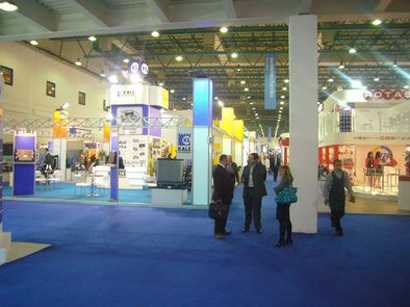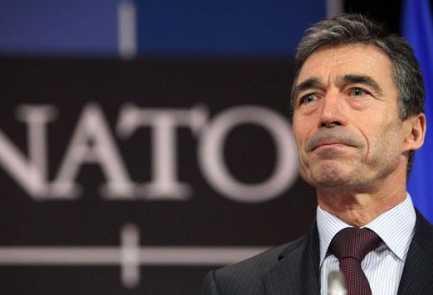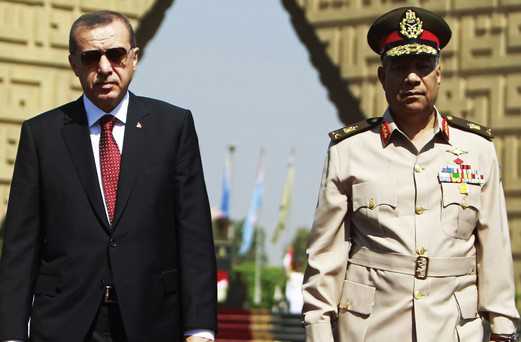After nearly three years of tension, Israel’s olive branch to Turkey in late March was welcome news to most of the Eastern Mediterranean, not to mention Washington. With Prime Minister Benjamin Netanyahu offering an apology for Israeli actions against a Turkish aid flotilla in 2010, it seemed possible we might see some cohesion on the region’s roster of current challenges. Announcing a full resumption of diplomatic ties, the two governments opened the door to an assortment of possible joint efforts, including how to deal with a beleaguered Syria and a new Egypt. However, what stood out for many was what it all would mean for the region’s energy options.
Location of the Eastern Mediterranean (Photo credit: Wikipedia)
After years of fruitless exploration in the Eastern Mediterranean, Israel hit upon billions in potential revenue and energy independence in 2009 with the discovery of one of the largest offshore finds in a decade. Since then, the country has rushed to exploit the reserves with the help of foreign partners, including Texas’s Noble Energy, in hopes of bringing in an estimated $80 billion over the coming years. However, while Israeli gas efforts officially started flowing during the final days of March, the challenge of just how to transport the product to worthwhile markets like Europe remains a challenge. Sure they’d explored alterative options, including a Cyrus-Greece line or LNG plants. But with Turkey eager to get involved in a gas bonanza they’d previously only watched from the sidelines and with the economic stability to back up their plans, Israel’s surest best now seems to rest in Ankara.
So, with Israel and Turkey now willing to talk and plan for the future, where does this leave poor Cyprus? Always willing to play the cautiously neutral middleman as its neighbors laid claims to the region’s newfound gas fortunes, the partial island nation is finding itself newly isolated in the push to cash in on the region’s gas riches.
This could not come at a worse time for Cyprus. Over the last few weeks, the country’s fiscal situation has gone from bad to worse as a push for a financial bailout package ended with a series of missteps that dashed any remaining confidence in the country’s economy. In addition to nearly destroying the country’s bloated banking system, the experience left them in a weaker position when it comes to developing their offshore claims.
Cypriot leaders, including newly elected Prime Minister Nicos Anastasiades have insisted that gas revenues be left alone when it comes to dealing with the country’s current crisis. In order to avoid selling off the country’s future wealth in a panic to ensure a quick bailout or loans, gas revenue would be kept separate and not be considered until production efforts really started bringing in revenue, which they expect as early as 2018 or 2019. Even during recent negotiations to secure funding to fend off a collapse of their banking system and restructure a Russian loan, Cyprus balked at the idea of exchanging support for exploration and production rights to their offshore claims.
However, as the dust has now settled and the reality of the country’s path towards economic recovery has become a little more clear – long and difficult – the ability to hold off on potential gas revenue has become much more difficult. Even with financial support pledged from Europe and the IMF, Cyprus may likely soon have to appeal for further support to stay afloat. Keeping gas off the table during those discussions may soon become impossible.
In a more immediate, logistical sense, Cyprus’s role in exporting gas out of the region and to Europe has become a lot more difficult in terms of being able to pay to play. With an economy in tatters and investor confidence in the dumps, its unclear just how the country’s leaders plan to support their own energy infrastructure development, much less taking part in regional efforts linking the Eastern Mediterranean with more eager markets. Israel may have floated early partnerships when offshore gas first became a reality, but given Nicosia’s current financial standing,
Here, it appears is where Turkey enters the picture. While Cyprus will be struggling to find ways to meet even basic spending needs, Turkey has shifted billions towards infrastructure projects in recent years.
For now, Cyprus has pledged to push on with or without regional partnerships they explored over the last year. Also working with Noble Energy, Cyprus lays claim to an estimated 60 trillion cubic feet of offshore gas reserves, which they hope will start flowing within the next few years. While they intend to move on alone if they have to, moving the gas out of Cyprus may prove challenging or at the very least, very expensive. Early proposals include building a pipeline to Cyprus where Liquefied Natural Gas plants could process the reserves for transport to the rest of Europe, though such an effort would cost an estimated $13.3 billion. For a country that just barely nailed down a bailout package worth about as much, this is not an easy task.
via What does an Israel-Turkey Awakening Mean for Mediterranean Gas? – Forbes.






